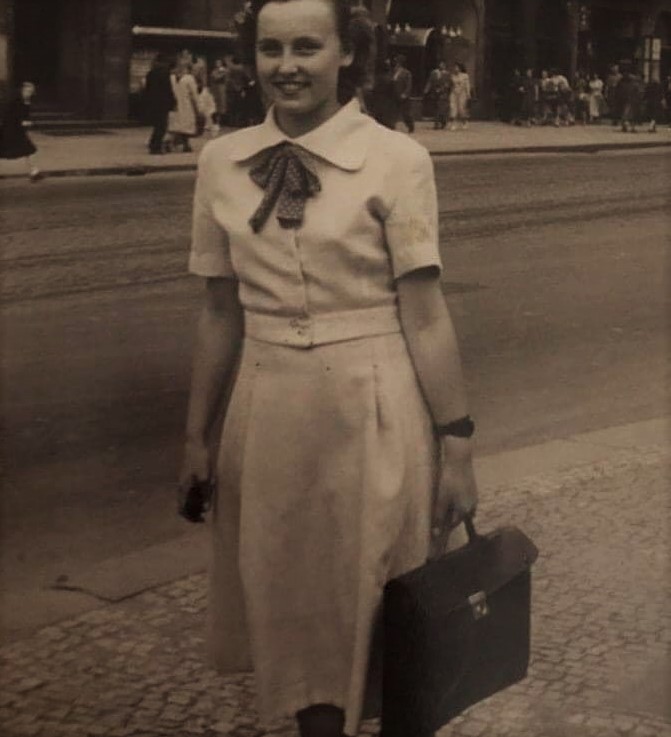A shrapnel went through the roof where I had my bed.

Stáhnout obrázek
Jarmila Jarošová, née Špacová, was born on 24 September 1934 in Prague. She was the eldest of three children. Her mother‘s family came from the Vysočina region. During the war, they were involved in helping the partisans and their grandfather Ladislav Urban paid for it with his life. She attended primary school in Prague 9 and also in Stránčice near Prague, where the family moved after an air raid on Prague destroyed their house in Vysočany on 25 March 1945. She graduated from the secondary medical school and obtained diploma certificates. She worked in many branches of health care, culminating her career as a regional nurse, from which position she retired.

























